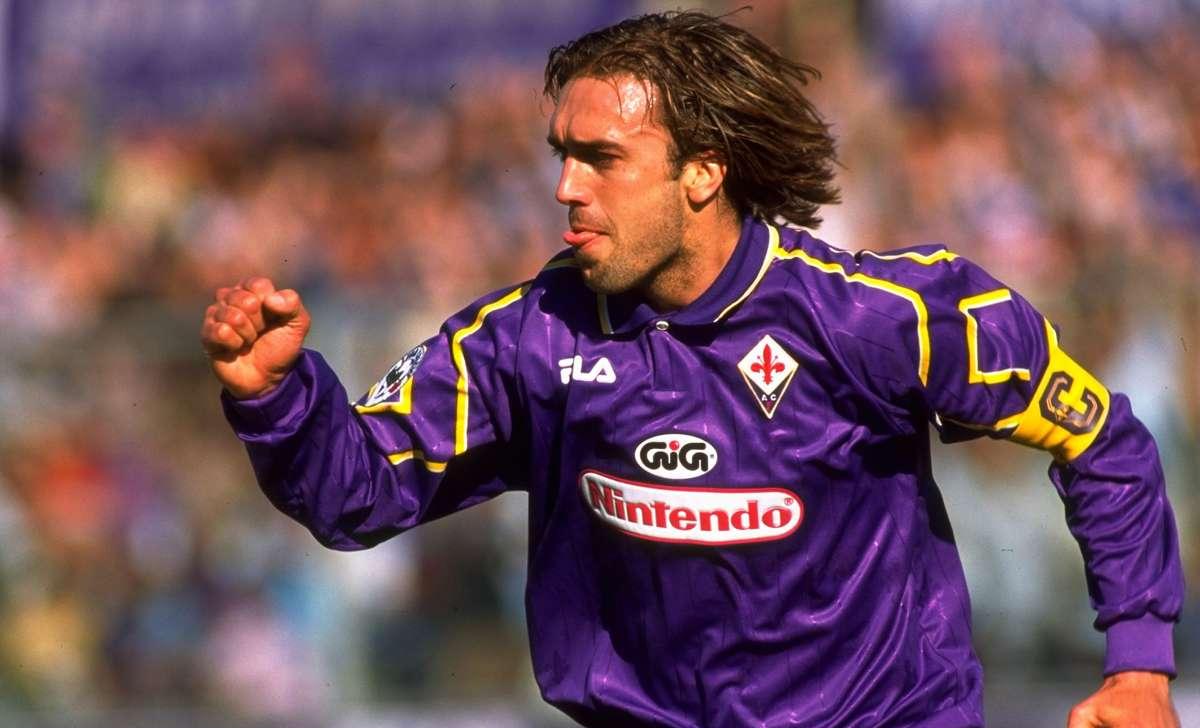The world is green and the stars are shining. In each year, a large number of football players are born, but there are always some special years, just in time for the stars to be born, so that they are widely discussed by fans in the future and serve as a memory talk. In this article, the author will combine the three factors of the quality, quantity and fame of the stars born in that year to take stock of the five golden years in the history of football. Of course, if there is a choice of lost pearls, you are naturally welcome to leave a message in the comment area to supplement it.

V. 1969
Top stars: Oliver Kahn, Gabriel Batistuta, Laudrup Jr., Dennis Bergkamp, Fernando Redondo.
Resting stars: Mikhailovic, Leonardo Nasimondo de Araijo, Vicente Lizarazu, Santiago Canizales, Ali Dei, Hummyv, Antonio Conte, Jens Lehmann, Paul Bento, Mark Wilmots, Prosensky, Marco Simone, Fastino Asprila, etc.
When it comes to the golden generation of football, the [69 generation] is often a generation that is easily underestimated. In the three lines of frontcourt, midfield and backcourt, [69 generation] can find high-profile superstars to press the team. In addition to the considerable number of stars produced, the superstars produced by this generation have an extremely strong personal style, such as [Lion King] Kahn, [God of War] Barty, [Ice Prince] Bergkamp, [Blonde Swordsman] Redondo, to be bloody, to be elegant and elegant.
IV. 1966
Top stars: Romario, Giorgio Wea, Stoichkov, Cantona, Paul Futre.
Rest of the stars: Tony Adams, CostaCuta, Julen Lopetegui, Rene Iquita, Enzo Shifo, Gianfrango Zola, Jorge Campos, Mazinjo, Ruben Sousa, Teddy Sheringham, Artilio Lombardo, Thomas Hasler, Abel Balbo, Dejan Savičević, etc.
In terms of the performance of the star group, the star taste of the [66 generation] is acceptable, but the advantage may not be strong enough to be convincing enough. The key indicator that really underpins the status of the [66 generation] is the competitive performance of the leading players in important personal honors. In terms of Mr. World or Golden Globe winners, [Generation 66] produced two great superstars, Romario and Giorgio Wea. In addition, Stoichkov twice touched the runner-up of the World Footballer of the Year, and Paul Futrey once won the European Silver Ball Award.
III. 1987
Top stars: Leo Messi, Luis Suarez, Karim Benzema, Gonzalo Higuain, Gerald Pique.
Rest of the stars: Jamie Vardy, Edinson Cavani, Francisco Fabregas, David Luiz, Sami Khedira, Arturo Vidal, Leonardo Bonucci, Pedro, Marouan Fellaini, Jan Fertunghen, Kevin Prince Boateng, Bryce Matuidi, Joe Hart, Arda Turan, Samir Nasri, Moussa Dembele, Elan Zahavi, Cuassi Gervinho, Ben Alpha, Joe Hart, Gamei, etc.
As early as more than ten years ago, when the [87 generation] players successively appeared in the football world as supernovas, fans had unlimited expectations for the development of this generation of fans. In terms of the depth of the lineup, the strength of the [87 generation] is extremely terrifying. Messi's greatness, needless to mention. The strength of the main selection and substitution in each other position is extremely strong. Especially in the position of the indian center forward, Su Ya, Stupid Horse, Watermelon, Vardy, Cavani five major god fronts to choose. Looking at the history of modern football, in terms of frontal selection, the star brilliance of the [87 generation] is probably only losing to the [76 generation].
Finally, it is worth mentioning that even in the history of Chinese football, the [87 generation] is also a generation of stars and full bloom. Among them, Zeng Cheng, Cui Peng, Arthur Junmin, Yu Hanchao, Wang Yongpo, Huang Bowen, Yu Hai, Zhang Lu, Rong Hao, Geng Xiaofeng, Mao Biao, Liu Jianye, Dai Lin, etc. are all outstanding representatives.
II. 1972
Leading stars: Zidane, Rivaldo, Figo, Nedved, Rui Costa.
Rest of the stars: Jimmy Hasselbaink, Christopher Dugari, Stam, Thuram, McManaman, Haaland Sr., Giovanni Elber, Karel Poporski, Mark Schwarzer, Petkovic, Abel Xavier, Deyayya, Mingbohao, Li Xuande, etc.
Similar to the [66 generation], the disconnect between the 72 generation and the ordinary stars is more obvious, even greater. However, the degree of brilliance at the top star level is completely enough to make up for this flaw. Zidane, Rivaldo, Figo and Nedved have all stood at the top of their personal honors in world football.
In addition, Zidane, Rivaldo, Nedved, Rui Costa, and figo, born in 1972, are all classic midfielders with strong strength, and together they have supported the reputation of the "midfield generation" for the "generation 72".
I. 1976
Leading stars: Ronaldo, Shevchenko, Vieira, Barack, Totti.
Rest of the stars: Van Nistelrough, Nesta, Kluivert, Seedorf, Guti, Recoba, Inzaghi, Morientes, Camoranesi, Gilberto Silva, Cordoba, Camoranesi, Rigbet Song, Nuno Gomez, Saul Martinez, Ahn Jung-hwan, Masayoshi Kajizaki, etc.
In the [76 generation], there are many classic shooter players who can no longer be classic, there are many football first love that touches the heartstrings of fans, and there are many ghost players with strange styles. Most of the fans and friends who have fully witnessed the glory of the [76 generation] must have entered the age of standing, slowly moving towards their own men forty.